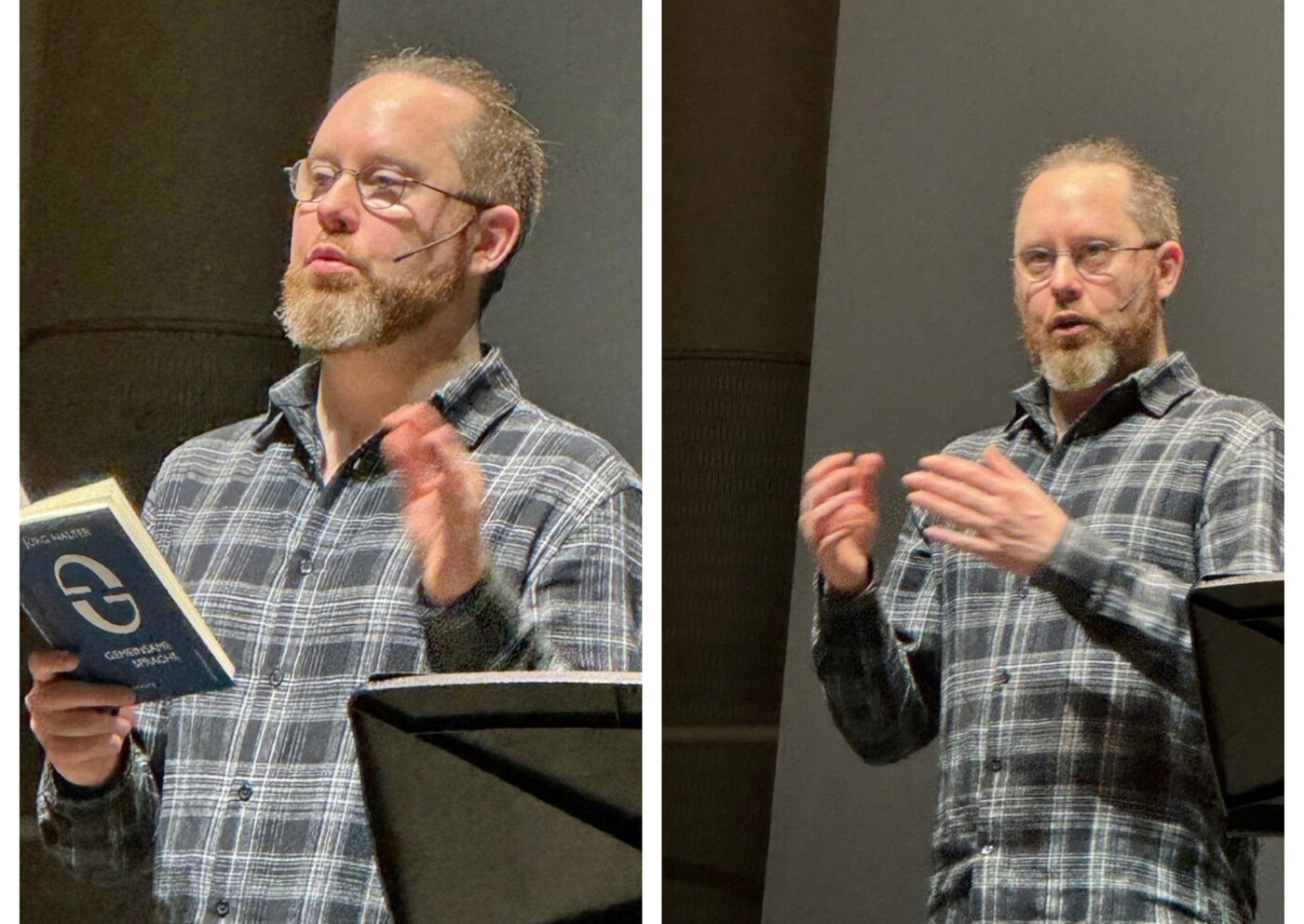"Please, I'm trying to talk"
This was the title of Jürg Halter's intervention at the symposium "Sprachkunst in der Musiktherapie" at the ZHdK. Improvising, he reflected on understanding and being understood and moved virtuously at the transitions between language, music and physical performance.

Terms such as musical language, word music and body language indicate that language, music and body relate to each other and are even mutually dependent. Ideally - and not only stage artists know this - the three elements come together to form an artistic whole.
The symposium "Language Arts in Music Therapy" on January 26 and 27 at the Zurich University of the Arts (ZHdK) focused on "the transitions between language and music". Experts from the fields of literature, music, performance and therapy examined the umbrella topic from various perspectives in lectures and workshops. Beate Roelcke and Diandra Russo moderated the event.
Music and language are used in therapy in a responsible and scientifically sound manner, but also in an artistic and creative way. Michael Eidenbenz, Head of the Music Department at the ZHdK, said in his welcoming address: "Music makers have a responsibility to make good music. This is even more true in a therapeutic context."
Three keynote speeches covered the many different aspects: Sandra Lutz Hochreutener spoke about the scientific framework of music therapy under the title "Body, Music and Word Language in Trialogue" and illustrated her work with practical examples. Benjamin Hoeltje reported on "rap music therapy", which works well with "at-risk young people", and the well-known Swiss author, poet, performer and visual artist Jürg Halter proved to be the perfect person to demonstrate the importance of language in conjunction with music in artistic form.
Combining sense and sound
Jürg Halter has worked successfully as a poetry slammer and as the fictional character Kutti MC. At the beginning of his lecture "Please, I'm trying to speak", he immediately presented the title in a scenic way. Stammering and struggling for words, he made his way to the stage and discussed his understanding of language using many examples and quotes, some from his own poems. He wandered restlessly back and forth between two music stands, as if trying to gather his arguments. In fact, he spoke freely and improvised for long stretches. "When mind and body come together, language can emerge," he said and continued: "Sense and sound, I will unite you." The stringing together of words must always have a rhythm. He called this "word music". He not only quoted, but performed the text excerpts, clothed them in a peculiar chant and provided them with the cool forward movements of the arms familiar from rap.
No fear of failure
Improvising in music and language has a lot to do with self-awareness and self-expansion, Halter explained, thus linking back to the topic of the event. He consciously exposes himself to the fear of failure and never prepares for performances down to the last detail. He likes people who expose themselves to the risk of embarrassment. "However, the question is at what level you fail," he added with a grin. In preparation for an improvisation, he goes into a "state between absolute concentration and letting go".
He demonstrated his improvisational skills in an astonishing way with a spontaneous performance based on the term "ducks" given to him by the audience. After a short time, he found himself in a kind of trance. As if he was reading from an imaginary teleprompter, he recited a text that was perfect in its senselessness.
"Language is the attempt to make oneself understood," emphasized Halter, and yet the danger of being misunderstood accompanies him. The aim would be to find a common language in which misunderstandings could be largely avoided. Critical reflection on the medium of language is indispensable for thinking people.








